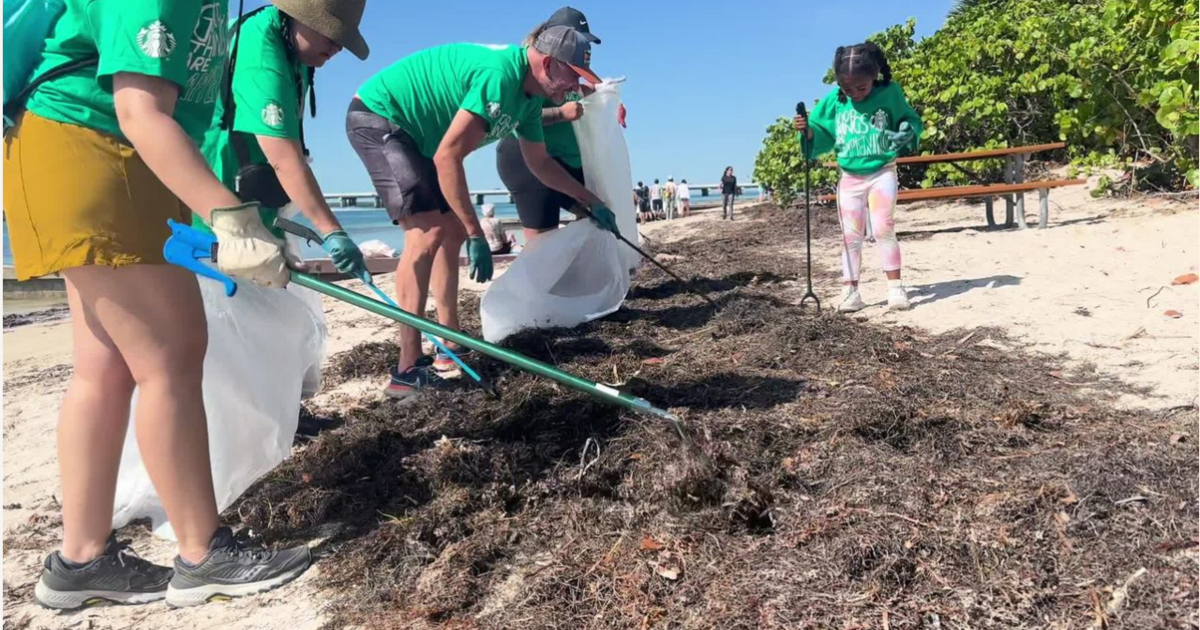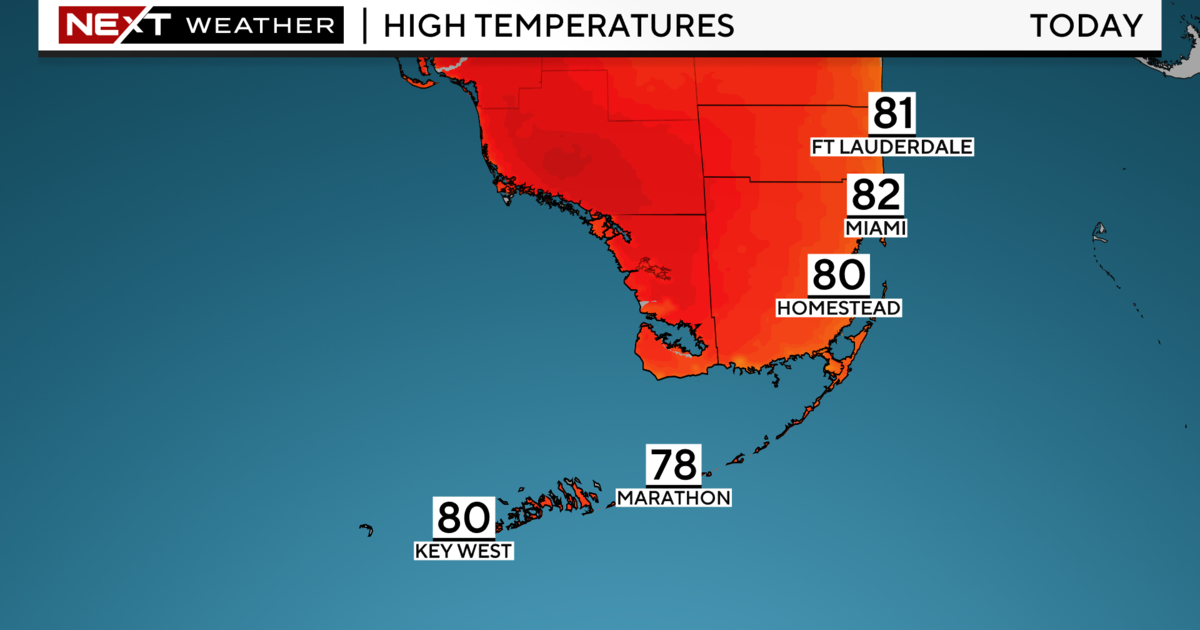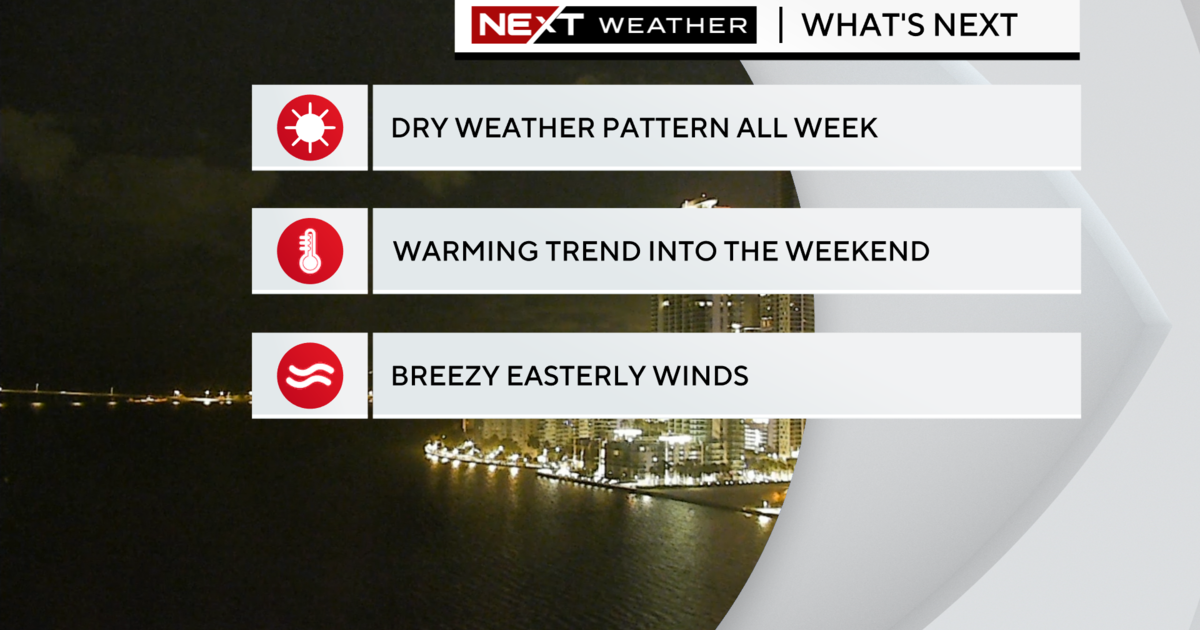East Coast Checks Bridges, Readies Plans For Irene
BUXTON, N.C. (CBS4) – Thousands were fleeing an exposed strip of coastal villages and beaches off North Carolina on Thursday as Irene approached, threatening to become the most powerful hurricane to hit the East Coast in seven years.
Hours after a hurricane watch was issued for much of the state's coast, emergency officials expanded evacuation orders to include hundreds of thousands of tourists and locals in four coastal counties. The areas include the barrier island chain known as the Outer Banks, which is expected to take the brunt of Irene's first hit over the weekend.
The governors of North Carolina, Virginia and New Jersey made emergency declarations to free up resources, while the Navy began moving dozens of ships in Irene's path out to sea. And emergency officials all the way to New England were urging residents in low-lying areas to gather supplies and learn the way to a safe location.
The storm is expected to come ashore Saturday in North Carolina with winds of around 115 mph (185 kph). Forecasters predict it will then chug up the East Coast, dumping rain from Virginia to New York City before a much-weakened form trudges through New England.
As the sun rose over North Carolina's barrier islands, tourists loaded suitcases in their cars, while locals stocked up on food, water and gas. Traffic was moving briskly Thursday morning on the two-lane highway that cuts through many of the coastal communities, but many feared that would change.
It's going to be a mess," said 66-year-old Buxton resident Leon Reasor as he stood inside a local bait shop. "Anyone who tells you they're not worried is a liar."
Four counties along North Carolina's coast -- Carteret, Currituck, Dare and Hyde -- ordered tourists to leave. Dare and Hyde also told permanent residents to move inland. Carteret ordered evacuations for residents of a barrier island that includes the Atlantic Beach and Emerald Isle resorts.
"It wouldn't behoove anyone to stay in these circumstances," Dare County emergency management spokeswoman Sharon Sullivan said. "Businesses are boarding up. Nobody can guarantee their safety."
The head of the Federal Emergency Management Agency said residents in the hurricane's path should pay attention to local broadcasters for instructions from local officials. Among the most important tasks, he said, was for evacuees to figure out a safe place to go before hitting the road.
"When you evacuate, you want to know where you're going and make sure you have somewhere to go, not just get on the road with everybody else and hope you find some place," FEMA administrator Craig Fugate said Thursday on CBS's "The Early Show."
All along the East Coast, officials were calculating what they needed to do as Irene continued its march across the Caribbean toward the U.S. The Navy ordered 27 ships to leave Norfolk and other Virginia ports, saying they can better weather the storm at sea. The vessels include an aircraft carrier, destroyers and submarines.
The hurricane is also forcing cruise lines to alter the routes of their ships and ports to consider doing the same for cargo ships that move up the busy Atlantic corridor.
New York City Mayor Michael Bloomberg urged residents living in low-lying areas on Thursday to line up a place to stay on high ground ahead of possible evacuations. He said he would make a decision by late Friday on whether to evacuate neighborhoods along the water in several boroughs. The city's subway stations and tunnels would likely be flooded in places, and officials plan to shut the system down ahead of time to reduce damage to the infrastructure.
"The police department is, for example, positioning 50 small boats at station house in low lying areas," said Mayor Michael Bloomberg.
Bloomberg is not ordering evacuations yet. Hurricane expert Dr. Nicholas Coch warned that New York City is a very dangerous place to be if a hurricane hits.
"If a Category 2 hurricane hit New York City it would depend on the time and the tide and various other things, but it would be weeks or months before the city got back to normal," said Coch.
Office of Emergency Management Commissioner Joseph F. Bruno Bruno said the city's agencies were preparing for a Category 1 hurricane with winds surpassing 74 mph and waters surging dangerously in low-lying areas. With five hospitals and nursing homes in the area, officials were readying to possibly evacuate the most frail and needy.
Even without hurricane-force winds, northeastern states already drenched from a rainy August could see flooding and fallen trees from Irene.
"You want to go into a hurricane threat with dry soil, low rivers, a half moon," New Jersey state climatologist David Robinson said.
That is not the case. The Garden State has gotten twice as much rain this month as in a normal August, and high tide happens at 8 a.m. EDT on Sunday, when Irene might be passing by.
The last Category 3 hurricane to hit the East Coast was Jeanne in 1994.
While the storm's path isn't definite, officials are taking nothing for granted.
In Maryland, inspections of bridges looking for cracks in the support piers and other structural features found no damage, according to state transportation agency spokeswoman Teri Moss. In Virginia, with a southeastern corner that could be in Irene's way, cities along the coast are reviewing their evacuation plans, said Laura Southard, spokeswoman for the state Department of Emergency Management.
Farther north, included marinas in Connecticut pulled in their boats and Rhode Island emergency management officials handed out sandbags.
Roads and bridges in Massachusetts are likely to bear the weather in good condition, said Peter Judge, a spokesman for the Massachusetts Emergency Management Agency. But the agency is planning for flooding and is keeping an eye on the 3,000 public and private dams throughout the state.
(TM and © Copyright 2011 CBS Radio Inc. and its relevant subsidiaries. CBS RADIO and EYE Logo TM and Copyright 2010 CBS Broadcasting Inc. Used under license. All Rights Reserved. This material may not be published, broadcast, rewritten, or redistributed. The Associated Press contributed to this report.)



